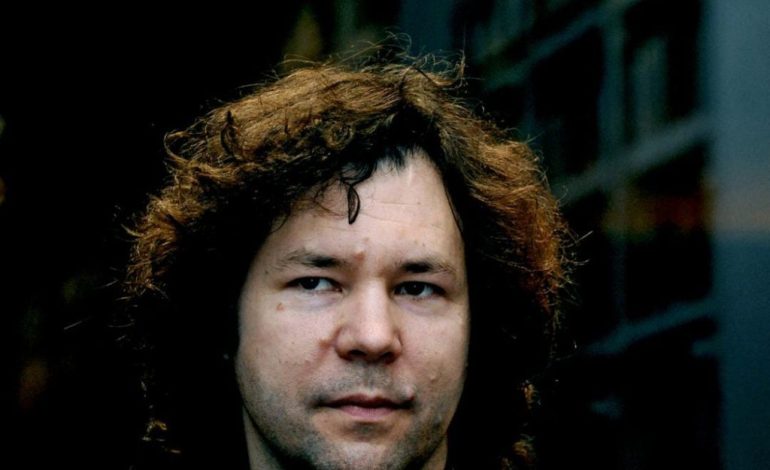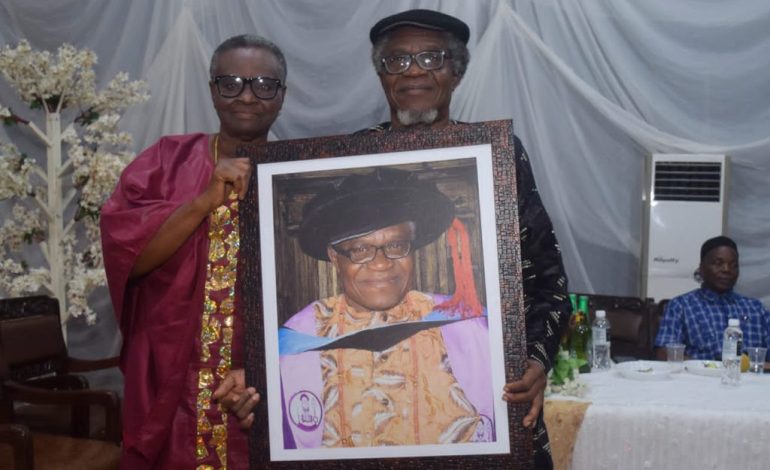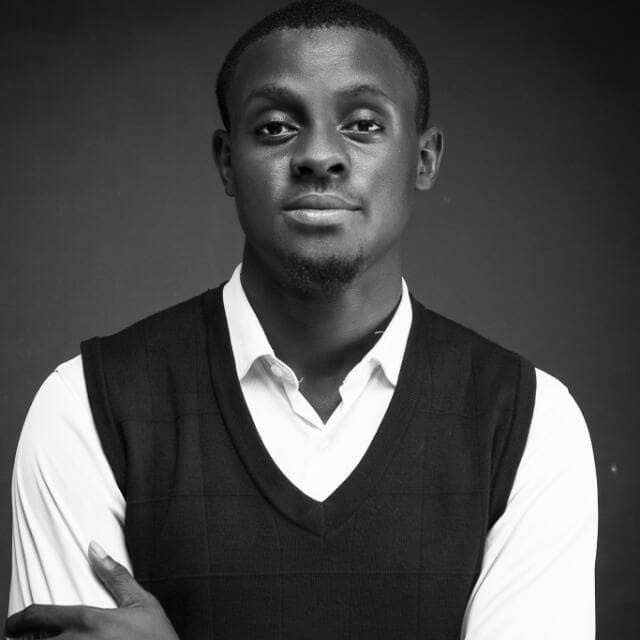Translating ‘Harmattan’ into English is a great moment for me and the book, says Croatian writer, Ivan Srsen

* ‘Plight of immigrant women in European prisons motivaed my novel‘
* ‘The rich, the rule makers, the lawmakers don’t consider literature too much’
By Anote Ajeluorou
Harmattan is a novel by the Croatian writer, Ivan Srsen, that has just been translated into English, and published by Onyeka Nwelue’s Abibiman Publishing Nigeria. It will be launched in Lagos on Wednesday, July 5, 2023 at Rovingheights Bookstore at Landmark Centre, Oniru, Lagos. Married to a Nigerian lady, Srsen, in this interview, talks about his motivation and why the English translation and the Lagos launch rank as great moments for him and his book

Croatian writer, Ivan Srsen
What inspired your novel ‘Harmattan’ on African immigrants, especially the illegal type?
MY wife is a Nigerian, and it’s also why I’m here on a family visit to Benin City. We met more than 20 years ago, and I met a lot of my wife’s family and friends in Europe from whom I gleaned this story about the destiny of illegal immigrants. Some of them I met in person, some of them are from stories I heard firsthand, some second hand, and some third hand. I realised that African women in Europe are among the under-classed among illegal immigrants, because they really don’t have anyone who would take care of them when they are in this position. So I decided to start the subject about the illegal immigrants when they get into custody, into prison, because of lack of proper documents, which is the practice of most European countries. If you are caught without documents, if you didn’t ask for asylum right away at the border, then you’re considered illegal immigrant and you can be in prison for an indefinite period of time.
I published Harmattan in Croatia language 10 years ago. When I was writing the book some 13, 14 years ago, in some countries conditions were harsher; some countries have improved, but generally illegal immigrants are treated very badly, and Europe has a big problem because the authority, the police are always treating a lot of these people in very inhumane manner. And you don’t know what is going on with a lot of people, where they are, where they are being sent, where they are being deported to. These are very pressing questions for European society today. And when I was writing the book there was absolutely no other book on the subject. Still today in Europe, very few writers know anything about the lives of immigrants, because it’s some kind of under-society, almost some kind of division between those who live legally and those who live illegally. When you live illegally, you have to hide from the authority, you have to hide your real identity, so nobody knows about you, the real you.
I wrote Harmattan in my language in Croatia, but it got translated so far to Greek in Greece and Slovenia three years ago, and finally Abibiman Publishers published it at the beginning of this year in the UK in English, thanks to the translator Ellen Elias-Barsac who did a great translation job. And now finally, as said in the acknowledgements of the book, people can read the book in the language the characters of this book really spoke in my head while writing it, because English is the common language of all the illegal immigrants and across Europe and all prisoners in the prisons they find themselves across Europe, because everybody, more or less, speaks English language. So this is a great moment for me and the book, because it’s important to shed more light on the subject.
But in the first place, my book is a novel and I want my readers to understand the motives of the characters, to understand the circumstances. So I’m very happy that Nigerians can read about the main protagonist, a young woman from Nigeria, Unoma, who ends up in German prison in Bavaria and shares prison space with a Ghanaian woman, Nana. There are characters from all around Europe; some Croatia, from Russia, from Slovenia, Ukraine, because the reality of Europe is that Eastern European countries are also economically disadvantaged, and find themselves in similar positions as African or South American or Asian immigrants. So this book is not only about African immigrants, but also about all the other immigrants of the world, of Europe who find themselves in such situation as being in prison. Because being in prison is one of the low points that any human being can encounter, especially if you didn’t commit any real crime except coming to another country without proper documents.
What does it mean for you to be a voice for these marginalised persons from the fringe who are in desperate position and from economically disadvantaged countries? And what impact do you think the book will have on authorities in rich European countries about how they treat illegal immigrants?
Unfortunately, I don’t think literature has a lot of effect on them. I don’t think literature has a lot of effect on the system in general. But what literature has effect on is general empathy and general conscience and awareness of the people, of the common people, because common people are those who are concerned with literature. The rich and the rule makers and the law makers don’t consider literature too much. But they can become aware of the problems, of the suffering of the common people, of men and women, and they can, in the long term, change a lot of things.
I’m sure by now you’re conversant with the ‘japa’ syndrome in Nigeria, where young and old alike are in keen on leaving for Europe, some illegally, in spite of what they hear of conditions over there. What can your book do to them if they were to read it?
I can’t blame anyone who wants to change his life, because he doesn’t feel comfortable where he is at the moment. You know, Bob Marley said, ‘if you don’t feel good, travel wide!’ So, the world shouldn’t be a place where some areas of the world are restricted for some and allowed for others. The world shouldn’t be a place like that. But what should happen in the world is that there should be more regulation about how things are done, not only for the big man to decide who can go somewhere and who can’t. So if things will be democratic and more regulated, then people could move across the world freely and economic balance would be established much faster than all these restrictions imposed just by the interests of big money. And of course the interests of the powers that have all the money as opposed to those who don’t have, to the countries that don’t have the money.
So I can’t condemn anyone who still wants to travel in spite of all the difficulties. I wouldn’t advice anyone who wants to take that journey, but I won’t condemn anyone either, because everyone is a master of his own destiny and many contemporary West African writers write about these issues, and they are trying to get to the bottom of it, but virtually no judgment that you can make on any of the immigrants who find themselves in these situations. Because they only risk their lives; they didn’t risk anyone else’s life.
I like your argument here, but you still mentioned ‘regulation’, which can be broadly interpreted and perhaps why European authorities imprison those they classify as illegal immigrants…
I understand the impact of that word. When I saidregulation, I mean regulation in benefit of all people.
But European powers are saying African, Asian, South American governments should fix their own countries so as to stop the influx of illegal migrants into Europe. And to be fair, Europe tries to help African governments to develop and keep their people at home, but that hasn’t quite worked, because leadership is still a problem…
I can’t share advice and pass judgments on Nigeria as a country as a society, but what I can do is to compare Nigeria to Croatia, compare West African to the Balkans, where I’m coming from. My own part of the world has been a very troubled part, let’s say forever, and we have foreign rulers who basically colonised the area from the Turkish Empire to Germans and Italians, and all the other powers who had vested interests there. And people in Croatia have been fleeing the country for generations, and Croatia has huge diaspora population in South America, in Europe, in Australia, all over the world. And when you have so many people going all over the world, it means they are not satisfied with life in their home countries. Why? Because of lack justice, lack of basic conditions, all kinds of restrictions, and all kinds of disadvantages.
That’s why I set the novel in the German prison where all these characters meet – all the women from West Africa, all the women from Balkans and Eastern Europe, which is a fact when you look at the structure of the prisoners in Western Europe; you will see that the prisoners are mostly from the these countries that I mentioned. So I can make that comparison and say that there’s not much historical difference between the Balkans and West Africa, just maybe we’re closer to Europe, we’re closer to the centre, so some of the benefits of European development affected us in a positive way. But there should be more justice, more empathy. Also the rest of the world should be affected by those benefits.
And that’s why we are human beings, anyway…
Yes, if somebody is taking something from you, you have the right to demand something in return from the person taking something from you.
I agree with you on that. Africa is the West’s cheap or almost free raw materials centre…
It should be both ways, every communication should be both ways, not just one way.
Is Harmattan your first published book or you have others?
No, I published a book of short stories before Harmattan called The Raft. I also published a non-fiction book on History of Zagreb Libraries with my colleague who is a bookstore owner. And we decided to write a book about libraries, because we believe a library tells the history of a certain place, because books collect all the memories and all the data of a certain place, of a certain culture of a certain nation. So we decided to write about our own city, because i was born in Zagreb, and my colleague with whom I wrote the book, we have been neighbours and lived in the same neighbourhood, and we loved books. My mother, my grand mother were librarians, so I spent a lot of time in libraries. The book is a kind of dedication to our own city and to the culture of our city. And I also wrote a book, which is an interview with a great Italian comic author I co-authored with Antonija Radic, titled Hello, Bing – Interview with Max Bunker. He’s a very humorous comic author everybody loved in Yugoslavia before the country fell apart in the 1990s, and from which Croatia came into being.
So I plan to finish my next novel in a year or two, because I work as a publisher and editor in Croatia. So, most of my time is taken by my office work. And my books always wait until I have some free time to dedicate to them.
Harmattan will be launched in Lagos soon. Do you look forward to it?
Yes, I look forward to seeing Nigerian audience, to talk with them about the book, about the characters in the book. I really look forward to exchanging ideas about the novel with the audience.



